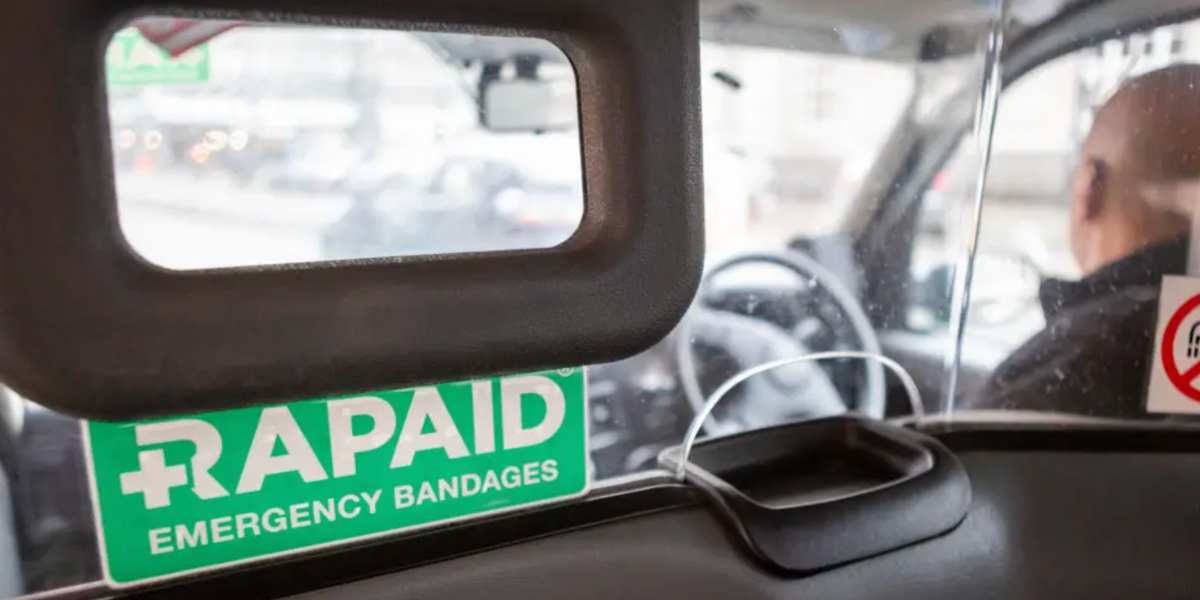Life-Saving Initiative: Cardiff Taxi Drivers to Carry Military-Standard Bandage Kits
In a groundbreaking move aimed at enhancing public safety, taxi drivers in Cardiff are set to carry military-standard bandage kits specifically designed for treating stab wounds. This initiative, launched by the charity Rapaid, seeks to provide quick access to life-saving equipment during emergencies, potentially saving lives in critical situations.
The Urgency Behind the Initiative
Alex Chivers, co-founder of Rapaid and a former soldier and police officer, articulated the pressing need for such a program. He stated, "It’s a grim fact that you can bleed to death in under five minutes. The quicker treatment begins, the better your chances of survival." This stark reality underscores the importance of immediate access to medical supplies, especially in urban environments where incidents can occur unexpectedly.
Distribution of Kits
The charity plans to distribute 50 kits to taxi drivers in Cardiff, expanding upon a network that already includes six other cities across the UK, such as London, Manchester, and Plymouth. Each taxi equipped with a kit will be identifiable by stickers on their vehicles, allowing members of the public to easily flag them down in case of emergencies. This visibility is crucial, as it ensures that individuals in need of urgent assistance can quickly locate a taxi driver who is prepared to help.
Contents of the Kits
The kits contain specialized bandages designed to stem serious blood loss, a critical factor in trauma care. While thousands of these kits have already been distributed in other cities, the initiative in Cardiff marks a significant step in broadening their reach. Chivers emphasized that the scheme is not limited to knife crime victims; the kits can also be used for various injuries, including those resulting from drunken altercations or accidents involving broken glass.
Role of Taxi Drivers
It’s important to note that taxi drivers are not expected to administer first aid themselves. Instead, they can hand over the kits to bystanders who are assisting someone in need. This approach empowers the public to take action while ensuring that taxi drivers are not placed in a position of medical responsibility.
Community Support and Impact
The initiative, which officially launched in Cardiff on a recent Friday, has garnered support from various stakeholders, including the local council, taxi drivers, and South Wales Police. This collaborative effort highlights a community-wide commitment to improving safety and emergency response capabilities.
Recent statistics indicate a decline in knife-related incidents in Wales, with hospital admissions for assaults involving sharp objects dropping to 60 in the year leading up to March 2024—a 19% reduction from the previous year and a remarkable 50% decrease from five years ago. However, despite this positive trend, the number of police-recorded knife and sharp instrument offenses remains a concern, particularly in the South Wales Police area, where approximately half of these incidents occur.
A Vision for the Future
Chivers acknowledged the ongoing issue of knife crime, stating, "It’s better to have the kits and not need them, but if one bandage saves one life, then we’ve achieved what we want." This sentiment reflects Rapaid’s broader vision for the nationwide adoption of these life-saving kits. Chivers expressed his ambition for the future: "What I’d love to see is that these are on the taxis across the whole country, and it just becomes normal that they carry these."
Enhancing Emergency Response Capabilities
The potential benefits of this initiative extend beyond immediate medical aid. Rhys Morgan from the Cardiff and Vale of Glamorgan licensing section remarked, "Having the tools available across the city to assist in preparedness and response to serious accidents or emergencies is a step forward in providing support to the wider daytime and nighttime economy in the city." This proactive approach to emergency preparedness could significantly enhance the overall safety of urban areas across the UK.
Commitment to Accessibility
In a further demonstration of commitment to local needs, the kits distributed in Cardiff will include bilingual instructions, ensuring that they are accessible to a diverse population. This attention to detail reflects a broader understanding of the community’s demographics and the importance of inclusivity in emergency response efforts.
Conclusion
As the Rapaid initiative rolls out in Cardiff, it represents a significant step forward in public safety and emergency preparedness. By equipping taxi drivers with military-standard bandage kits, the program not only aims to save lives but also fosters a culture of readiness and community support. With plans for expansion across the UK, this initiative could redefine how urban areas respond to emergencies, making life-saving resources readily available when they are needed most.
